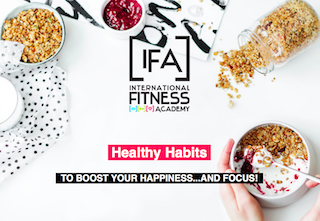| We often believe the arrival of certain things – more money, the perfect partner, a better job, bigger house or new car – will make us happier. But Harvard psychologist and author of the New York Times best-selling book, Stumbling On Happiness, Dan Gilbert says our brains constantly misjudge what really makes us happy.
In fact, studies have shown it’s the little things that make the biggest difference to how we feel and function. Being happy is actually a lot like exercise. It takes discipline and daily effort. But if you do the work, you reap the rewards.
We can strengthen our happiness muscles daily by adopting simple, healthy habits that make us feel better. Happiness is not an emotion that just magically happens. It’s state of mind you can create.
Here are three ways to start cultivating your own self-renewable supply. |
